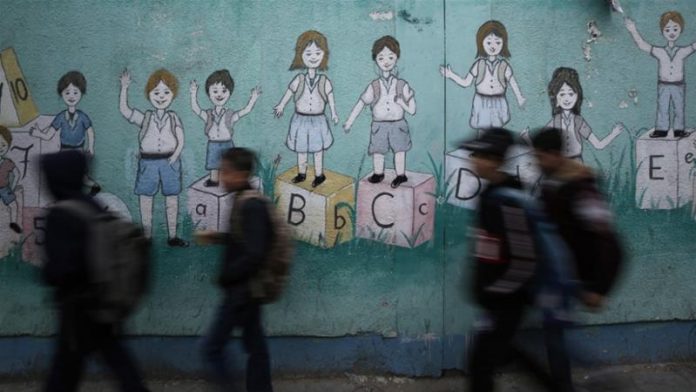The United Nations has warned that the coronavirus pandemic risks deepening a schooling crisis for refugee children, nearly half of whom were already out of school before the emergence of COVID-19.
A new report published on Thursday by the UN’s refugee agency (UNHCR) cautioned that many refugee children – especially girls – who had attended school before the pandemic would not be able to return.
“After everything they have endured, we cannot rob them of their futures by denying them an education today,” UNHCR chief Filippo Grandi said in a statement, calling for action to support refugees’ right to an education.
The report, using data from 12 countries that host more than half of the world’s refugee children, found that more than 1.8 million of them – or a full 48 percent of all refugee children of school age – are out of school.
Attendance is particularly lacklustre in secondary school and higher.
About 77 percent of the refugee children were enrolled in primary school, but only 31 percent attended secondary school and 3 percent were in higher education, according to the report.
While the UNHCR said a shift in methodology made it difficult to compare with data from previous years, it noted the statistics, dire as they look, actually represent a small improvement.
A 2019 report indicated that only 1 percent of refugees worldwide were in higher education. But the pandemic is now threatening to undo even the small advances made, it said.
‘Chilling prediction’
The report found that while children in every country have been hit by the impact of the pandemic and containment measures put in place to rein in the virus, refugee children have been especially disadvantaged.
They are far more likely than others to face difficulty returning to their studies, with many refugee families no longer able to afford school fees, uniforms and books as income sources dry up.
They are also less likely to have access to the technologies needed for remote learning and could be required to work to help keep their struggling families afloat.
This is particularly true for refugee girls, who already had less access to education than boys.
By the time they reach secondary level, refugee girls are half as likely as their male peers to be enrolled in school, according to the UNHCR, which warned the coronavirus crisis risked widening the gender disparities.
Using UNHCR data, the Malala Fund, which works towards removing barriers preventing girls from going to school, estimated that half of all refugee girls who were attending secondary school when the pandemic hit will not return when classrooms reopen this month.
And in countries where less than 10 percent of refugee girls were enrolled in secondary school, all of them were at risk of dropping out for good.
That is “a chilling prediction that would have an impact for generations to come”, the UNHCR said.
Matthew Saltmarsh, a UNHCR spokesman, told Al Jazeera from London on Thursday: “We think there are a number of steps that need to be taken. First of all, we think inclusion is the most important thing and a number of countries have included refugees in their national education system.
“More can be done by the international community to provide a medium-term sustainable aid for education, but also for education in emergencies. Private sector and other actors can come in,” he said.
Source – AL JAZEERA AND NEWS AGENCIES
















